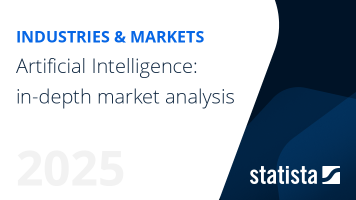AI Service Robotics - Hungary
Hungary- The market size in the AI Service Robotics market is projected to reach US$12.48m in 2025.
- The market size is expected to show an annual growth rate (CAGR 2025-2031) of 26.25%, resulting in a market volume of US$50.53m by 2031.
- In global comparison, the largest market size will be United States (US$4.56bn in 2025).
Definition :
Artificial intelligence service robotics is a branch of robotics that focuses on developing robots with artificial intelligence (AI) capabilities to serve and assist humans. These robots are designed to interact and communicate with users, understand their needs, and perform tasks or provide information autonomously. By combining AI algorithms, natural language processing, computer vision, and other AI techniques, AI service robots can carry out tasks in the areas of customer support, personal assistance, healthcare monitoring, and home automation, which lead to improved convenience, efficiency, and quality of life for individuals.
Additional Information:
The market comprises two key performance indicators: market sizes and market sizes by industry. Market sizes are generated by the funding amount of Artificial Intelligence Service Robotics companies and market revenue data from the Statista robotics market. Key players of the market include companies such as SoftBank Robotics, iRobot, and Boston Dynamics.
For more information on the data displayed, use the info button right next to the boxes.
- Social robots designed for providing companionship and support to individuals, such as PARO, a therapeutic robot designed to comfort patients with dementia, and Buddy, a social robot designed to assist with tasks and provide entertainment
- Cleaning robots designed for use in households and commercial settings, such as iRobot's Roomba and Ecovacs' Deebot
- Delivery robots designed for autonomous transportation of goods and packages, such as Starship Technologies' delivery robots and Nuro's autonomous delivery vehicles.
- Military robots used for reconnaissance or combat, such as drones used for airstrikes and ground robots used for explosive ordnance disposal
- Industrial robots used for manufacturing and logistics operations, such as robotic arms used in assembly lines and automated guided vehicles (AGVs) used in warehouses
- Medical robots used for surgical procedures or medical diagnosis, such as da Vinci surgical robots and MRI-guided robotic systems.








